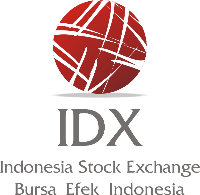IDX Islamic
Islamic Capital Market in Indonesia
Islamic Capital Market is activities in the capital market that are not contrary to Islamic principles. Indonesia's Islamic capital market is part of the Islamic financial industry regulated by the Financial Services Authority (OJK), particularly the directorate of Islamic capital markets.
The historical milestone of the birth of Indonesia's Islamic capital market started with the first Islamic mutual fund issued in 1997. Then followed by the launching of the Jakarta Islamic Index (JII) as the first Islamic stock index, consisting of the 30 most liquid Islamic stocks in Indonesia, in 2000. First Sukuk in Indonesia using Mudarabah contract was first issued in 2002. OJK regulations (at that time is Bapepam and LK) regarding the first Islamic capital markets were issued in 2006 and continued with the issuance of List of Islamic Securities (DES) in 2007. DES is a guide for market participants in choosing shares that fulfill of Islamic principles. In 2008, the government issued Law no. 19 of 2008 concerning State Islamic Securities.
The milestone of the rise of Indonesia's Islamic capital market has already begun with the launched of Indonesia Sharia Stocks Index (ISSI) as a composite index of Islamic stocks, which consists of all Islamic stocks that listed in Indonesia Stock Exchange (IDX), in 2011. Then followed by the launched of Sharia Online Trading System (SOTS) by securities companies in the same year. SOTS is the first system in the world which developed to facilitate Islamic investors in conducting stock transactions according to Islamic principles. In 2013, Bank Syariah Mandiri became the first RDN Syariah Bank. In addition, in the same year, the first Islamic ETF was launched in Indonesia. Bank Panin Syariah became the first Islamic issuer that listed on the Indonesia Stock Exchange in 2014.
As the country with the largest Muslim population in the world, Indonesia is a country that has the largest share of Islamic capital market in the world. On the other hand, the ratio of market capitalization to GDP (Gross Domestic Products) of Indonesia is still below 50%. These conditions indicate that the potential for Islamic capital market development in Indonesia is still very large.
Islamic Principles in Indonesian Capital Market
The institution that regulates the implementation of Islamic principles in the Indonesian Capital Market is the National Islamic Board of the Indonesian Ulama Council (DSN-MUI) in the form of issuing fatwas that related to investment activities in the Indonesian Islamic Capital Market. The first fatwa about the Islamic capital market that was issued by DSN-MUI in 2001 was fatwa No. 20 regarding the issuance of the Islamic Mutual Funds. In 2003, DSN-MUI issued fatwa No. 40 regarding the capital market and general guidelines on the implementation of Islamic principles in the capital market. Then in 2011, DSN-MUI issued fatwa No. 80 concerning The Implementation of Islamic Principles in The Equity Trading Mechanism at The Stock Exchange's Regular Market.
In order to apply the implementation of Islamic principles in the Indonesian capital market to be more binding and have legal certainty, OJK convert the Islamic principles in the Indonesian capital market into OJK regulation No. 15/POJK.04/2015 regarding the implementation of Islamic principles in the capital market.
The Akad in the Issuance of Islamic Securities in Indonesia Capital Market
OJK has arranged about the Akads (contracts) that can be used in every issuance of Islamic securities in Indonesia capital market through OJK regulation No. 53/POJK.04/2015. However, basically all of the Akads that fulfill Islamic principles can be used in the issuance of Islamic securities as long as they are not contradictory to the OJK regulations that apply. The Akads that can be used in the issuance of Islamic securities in Indonesia capital market according to the regulation is the contract ijarah, istishna, kafalah, mudharabah, musyarakah and wakalah.
